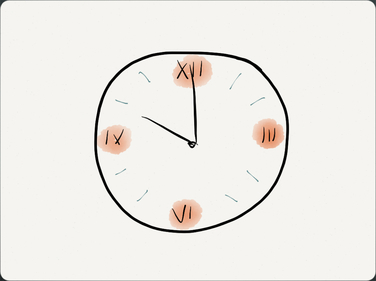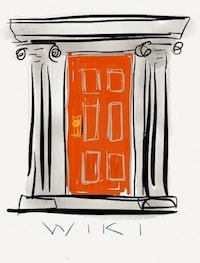|
Some Random Thoughts On Time Management:
THE WORK DAY The 8-5 work day is quickly becoming an anachronism. It is still meaningful for a lot of workers, but not for knowledge workers, designers for instance. Being at the office is only good for making it look like something is getting done. When you factor in all the gossip, 'doing office stuff', interruptions, 'having a meeting' events and times when you really don't feel like working, the typical work day is maybe 5 hours of actual work. Maybe. I think it would be more adult-like for everyone to work 35 productive hours a week when and where they want to work them. COMP TIME Compensatory Time is a tool for recognizing and documenting actual hours worked. If the goal is 35 hours of productive work a week, and you actually worked 30 or 40 hours, then the 5 hour difference is tracked as a running balance. Periodically you evaluate whether any action should be taken. A big balance might merit a bonus. A deficit might require a conversation, or it might show that the work is getting done just fine without all the hours. It is basically a salary tool to make sure neither party is being taken advantage of. OFFICE HOURS / BEING AT THE OFFICE The reality is that knowledge workers don't have many reasons to be at the office. Office hours let the letter carrier and sales reps know when they can expect to find someone in the office. Everyone else communicates by phone or email. So set the goal of manning the office from 10 AM to 3 PM. Post a sign. Coordinate schedules to meet the 10 - 3 goal; and let everyone work at the office when they want to. SCHOOL HABITS / OUTGROW OR HONOR? I know I taught myself some lousy time-management habits when I was in school. I wouldn't be surprised if you did, too. If those habits don't work for you, by all means change them. But if those habits represent who you are and how you deal with time, then I think it is alright to decide to honor the habits and not change. I promised myself that when I turned 40 - "no more all-nighters". My last all-nighter was when I was 52. MEETINGS / STANDING MEETINGS Meetings are the biggest time-wasting invention of all time. I have caused at least a few man-years of wasted time with my meetings. Standing meetings should be outlawed. Standing meetings always degenerate into a waste of time. An email is usually more than adequate. When it is easier to call a meeting than to write the email, you are really out of control. Always have a unique agenda to make sure you know what you want to accomplish. Don't copy the agenda from the last meeting. Start from scratch. If the purpose of the meeting is to make comments, send an email. If you want input, send an email. If you want a decision, send out a poll. Just make sure you need to meet to get the result that you need. EFFICIENCY VS EFFECTIVENESS Efficiency and effectiveness are not the same thing. You want effectiveness every time. Some people can get tons of stuff done every day. They burn through the mail, the email, setting up meetings, making decisions, completing assignments. It is possible that they were 100% efficient in the use of their time. If none of this work led to accomplishing their top priorities, then they were 0% effective. Racing to the finish line only counts if you are in the right race. DAILY GOALS The best technique that I have found for staying effective is the 3 Daily Goals. End each day by evaluating what you accomplished toward your 3 Daily Goals. Then write down the 3 Daily Goals you want to accomplish the next day to take you closer to meeting your top priorities. During the day, check the list every hour or so. Get back on track if needed. PRIORITIES I can't tell you what your priorities should be, but I can tell you how to prioritize your design work.
Mallikarjun Mishra
10/2/2017 02:08:45 am
useful facts Comments are closed.
|
x
Archives
February 2024
Categories
All
|
Architekwiki | Architect's Resource | Greater Cincinnati
© 2012-2022 Architekwiki
© 2012-2022 Architekwiki







